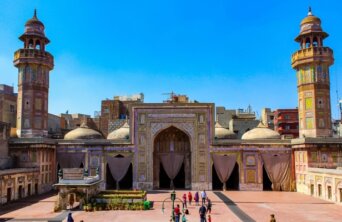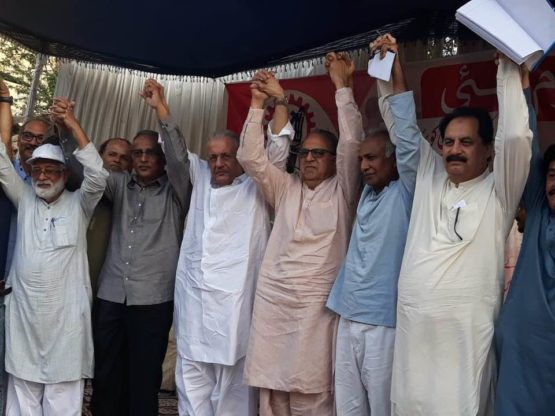- About
- Topics
- Picks
- Audio
- Story
- In-Depth
- Opinion
- News
- Donate
- Signup for our newsletterOur Editors' Best Picks.Send
Read, Debate: Engage.
| topic: | Democracy |
|---|---|
| located: | Pakistan |
| editor: | Shadi Khan Saif |
Landmark national elections are just around the corner in Pakistan, a country of over 200 million people with a long history of military interventions.
Pakistan’s economy is on a borrowed lifeline from the international lenders setting tough economic conditions only to keep the country at bay from an economic meltdown.
The 8 February polls will set the course for another five years for Pakistan as it battles resurging poverty, militant extremism and an array of other social constraints.
With prominent allegations of the military establishment calling shots, political parties will compete for a simple majority of 169 out of 336 seats to be able to claim victory and form the government.
The former popular prime minister Imran Khan is out of the race after falling out with the army in the wake of his dramatic ouster from power - just like the many prime ministers before him coming to terms with the reality of military supremacy before completing their tenures.
With Khan behind bars on multiple charges, his party, the Pakistan Tehreek Insaf, which was once the most popular party in the country, is now not allowed to contest the polls in an evident display of disapproval by the military establishment. Khan's party members have been arrested and forced to either quit or switch sides in the build-up to the polls.
Polls and surveys indicate another former premier, Nawaz Sharif, is having a facilitated steady ride to popularity, aiming to secure victory in the polls. In an electoral rally this week, Sharif claimed he would strive for civilian supremacy, but the crucial question is whether he will acknowledge the help he has received to top these polls.
Pakistan is a young country with a vibrant youth population, educated and tech-savvy, and well-informed voters make better choices.
Relative civilian supremacy has delivered Pakistan one of its best democratic jewels - the 18th amendment of the constitution - that paved the way for some devolution of power to lower levels of governance and made rulers slightly more accessible and accountable to the voters.
Pakistani citizens' primary concerns are often local levels of governance and services such as health, education, and infrastructure, which can only be addressed if powers are further dissolved at the city and suburb levels.
These elections present quite a unique opportunity for Pakistanis to not just put an end to the vicious cycle of military domination but also a genuine stake in running and developing the country in a much more fair and dignified way.
Image by Malik Naveed Photography.

